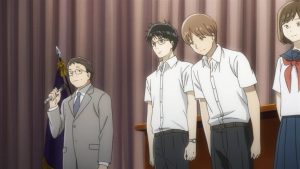 Back in the day, we used to have a saying (it found its way onto many a bumper sticker) – “There’s nothing like a Grateful Dead concert”. Well, in anime terms there’s nothing like Chihayafuru. Given how much angst the manga has caused me it’s easy to lose sight of that fact, but now that the anime is back, so is the realization. Everyone’s game is raised – Asaka Morio, Miyano Mamoru and several other cast members, Yamashita Kousuke. There’s something magical about this series that makes everyone involved able to rise above themselves and be the absolute best they ever are.
Back in the day, we used to have a saying (it found its way onto many a bumper sticker) – “There’s nothing like a Grateful Dead concert”. Well, in anime terms there’s nothing like Chihayafuru. Given how much angst the manga has caused me it’s easy to lose sight of that fact, but now that the anime is back, so is the realization. Everyone’s game is raised – Asaka Morio, Miyano Mamoru and several other cast members, Yamashita Kousuke. There’s something magical about this series that makes everyone involved able to rise above themselves and be the absolute best they ever are.
 That’s a wonderful thing, undeniably. But I must confess I find being smacked in the face with it both exhilarating and incredibly frustrating. On the one hand I love having this experience again, because nothing else can give it to me. But I also resent that this series still has such an unshakable grip on me, because I know how badly it’s going to make me feel. Much of the anime’s magic comes from Suetsugu-sensei’s writing, make no mistake. But the anime is better in every way – it’s Chihayafuru Premium. And because of that it’s going to be even harder to take a literal and emotional step back from it when the narrative demands it than it was with the manga.
That’s a wonderful thing, undeniably. But I must confess I find being smacked in the face with it both exhilarating and incredibly frustrating. On the one hand I love having this experience again, because nothing else can give it to me. But I also resent that this series still has such an unshakable grip on me, because I know how badly it’s going to make me feel. Much of the anime’s magic comes from Suetsugu-sensei’s writing, make no mistake. But the anime is better in every way – it’s Chihayafuru Premium. And because of that it’s going to be even harder to take a literal and emotional step back from it when the narrative demands it than it was with the manga.
 With that said, the story is in a pretty good place where the anime is right now, and these two episodes were truly superb. Part of the reason for that is that increasingly as it progresses the supporting cast is the best thing about Chihayafuru, and they really shine here. Both Harada-sensei and Miyauchi-sensei, poignantly voiced by new seiyuu now but no less inspirational on and off screen. The sadistic Sudo-kun, and the ever-watchful Sakurazawa-sensei. Even Hiroshi-san, the quiet Shiranami sempai who somehow manages to provide special moments with so little screen time or dialogue.
With that said, the story is in a pretty good place where the anime is right now, and these two episodes were truly superb. Part of the reason for that is that increasingly as it progresses the supporting cast is the best thing about Chihayafuru, and they really shine here. Both Harada-sensei and Miyauchi-sensei, poignantly voiced by new seiyuu now but no less inspirational on and off screen. The sadistic Sudo-kun, and the ever-watchful Sakurazawa-sensei. Even Hiroshi-san, the quiet Shiranami sempai who somehow manages to provide special moments with so little screen time or dialogue.
 Best of all, of course, are the Mizusawa trio, forever in the shadow of Taichi and Chihaya but utterly integral to the charm of Chihayafuru. The observant and thoughtful Nishida, forever just a little short of the best and brightest but relentlessly thinking of his teammates. Komano-kun, pure effort and desire, forever facing high walls in his path. And Kana-chan, beautiful soul and healing spirit, quietly pursuing her own course even as she tries to help the friends she loves along on theirs. The moments she shares with Komano in the Class-B room may be the only love that tournament gets here, but they provide the emotional high point of the second episode – and remind us why many fans consider this the true romantic pairing of this series.
Best of all, of course, are the Mizusawa trio, forever in the shadow of Taichi and Chihaya but utterly integral to the charm of Chihayafuru. The observant and thoughtful Nishida, forever just a little short of the best and brightest but relentlessly thinking of his teammates. Komano-kun, pure effort and desire, forever facing high walls in his path. And Kana-chan, beautiful soul and healing spirit, quietly pursuing her own course even as she tries to help the friends she loves along on theirs. The moments she shares with Komano in the Class-B room may be the only love that tournament gets here, but they provide the emotional high point of the second episode – and remind us why many fans consider this the true romantic pairing of this series.
 As this was a double episode there’s obviously a lot to unpack, and little time for me to do it. Arata is starting to focus on building a team at his high school, realizing the limits of individual competition for his personal growth. Chihaya is finally greenlighted to use her right hand, just as Taichi is urging her to not become too used to playing with her left. And the Master and Queen qualifiers (held at Omi Jingu – in Otsu – in Kansai) have been scheduled a week earlier than usual, and thus conflict with the class trip (to Kyoto). And Miyauchi-sensei insists that the karuta club members cannot possibly boycott the school trip, even for an event as important as this one.
As this was a double episode there’s obviously a lot to unpack, and little time for me to do it. Arata is starting to focus on building a team at his high school, realizing the limits of individual competition for his personal growth. Chihaya is finally greenlighted to use her right hand, just as Taichi is urging her to not become too used to playing with her left. And the Master and Queen qualifiers (held at Omi Jingu – in Otsu – in Kansai) have been scheduled a week earlier than usual, and thus conflict with the class trip (to Kyoto). And Miyauchi-sensei insists that the karuta club members cannot possibly boycott the school trip, even for an event as important as this one.
 There’s a quietly wonderful moment here, easy to gloss over for flashier developments but one of my favorites of the series. Chihaya’s mild-mannered homeroom teacher has assigned the students to write poems over their summer break, and the resulting compilation is the source of much amusement for the class. But his response is a true moment of profundity. “Learn the pain of creating something.” he tells his students, “And once you’ve learned it, resolve yourself to show lenience to others.” Suetsugu has the ability to reach straight into my heart with words as few mangaka can (Harada and Taichi’s conversation on the train platform is the best example) and this is one of her finest turns of phrase.
There’s a quietly wonderful moment here, easy to gloss over for flashier developments but one of my favorites of the series. Chihaya’s mild-mannered homeroom teacher has assigned the students to write poems over their summer break, and the resulting compilation is the source of much amusement for the class. But his response is a true moment of profundity. “Learn the pain of creating something.” he tells his students, “And once you’ve learned it, resolve yourself to show lenience to others.” Suetsugu has the ability to reach straight into my heart with words as few mangaka can (Harada and Taichi’s conversation on the train platform is the best example) and this is one of her finest turns of phrase.
 This is an important moment for Chihaya, make no mistake. This is a character, frankly, who exhibits a marked lack of growth as compared to most of the major characters in this cast. The fog of uncertainty about her future (“You can’t be a pro karuta player” as Miyauchi points out) finally clears, and she shows that she’s truly heard her teacher’s words and taken inspiration from them. What nobler way to express her love of karuta than to cultivate that love in the next generation? She’s got a ton of work to do to make the goal of becoming a teacher remotely possible, but at least it is a goal – and a worthy one.
This is an important moment for Chihaya, make no mistake. This is a character, frankly, who exhibits a marked lack of growth as compared to most of the major characters in this cast. The fog of uncertainty about her future (“You can’t be a pro karuta player” as Miyauchi points out) finally clears, and she shows that she’s truly heard her teacher’s words and taken inspiration from them. What nobler way to express her love of karuta than to cultivate that love in the next generation? She’s got a ton of work to do to make the goal of becoming a teacher remotely possible, but at least it is a goal – and a worthy one.
 The scene then shifts to the Yoshino tournament for Class A and B players, where the aforementioned Komano-Kana interaction takes place. Desk-kun sadly washes out in the first match of his first Class-B event and last chance to qualify for the Master qualifier, but the A tournament is a barnburner. All of the familiar faces are present, and one important new one – Inukama Haruka (Sakamoto Maaya). Inukama-san is a giant of karuta – a 4-time Queen, Sakurazawa-sensei’s white whale, and the mother of two young sons. She’s been away from the sport for a good while, but Inukama-san is back, toddler and baby (and husband) in tow. And her performance in her first tournament back (she’s fated to meet Chihaya in the quarter-finals) reveals that she’s a force to be reckoned with.
The scene then shifts to the Yoshino tournament for Class A and B players, where the aforementioned Komano-Kana interaction takes place. Desk-kun sadly washes out in the first match of his first Class-B event and last chance to qualify for the Master qualifier, but the A tournament is a barnburner. All of the familiar faces are present, and one important new one – Inukama Haruka (Sakamoto Maaya). Inukama-san is a giant of karuta – a 4-time Queen, Sakurazawa-sensei’s white whale, and the mother of two young sons. She’s been away from the sport for a good while, but Inukama-san is back, toddler and baby (and husband) in tow. And her performance in her first tournament back (she’s fated to meet Chihaya in the quarter-finals) reveals that she’s a force to be reckoned with.
 Again, there’s so much happening here – too much to cover in one sitting. Highlights include the meeting of Arata and Taichi in the rest break, where Taichi is once again confronted by his own insecurities about his rival in karuta and love (who asks for advice in setting up a karuta club at his school in Fukui), and Sudo’s fierce and angry battle with Rion. The Shiranami juggernaut powers ahead, with Harada-sensei dominating little girls and Chihaya unconsciously (but noted by Nishida-kun) incorporating the lessons of her left-handed interlude into her play style.
Again, there’s so much happening here – too much to cover in one sitting. Highlights include the meeting of Arata and Taichi in the rest break, where Taichi is once again confronted by his own insecurities about his rival in karuta and love (who asks for advice in setting up a karuta club at his school in Fukui), and Sudo’s fierce and angry battle with Rion. The Shiranami juggernaut powers ahead, with Harada-sensei dominating little girls and Chihaya unconsciously (but noted by Nishida-kun) incorporating the lessons of her left-handed interlude into her play style.
 My favorite moment of the third episode, though, comes as Taichi is struggling to overcome a quirky and unconventional teammate of Sudo-san – already dealing with psyching himself out over the Arata encounter. Hiroshi and Harada, deep into their own matches, see him in trouble and take the opportunity to literally knock some sense back into him. It’s a powerful reminder of the overarching theme of these episodes and an important realization for Taichi – Harada-sensei’s words about individual competitions being the true team competitions aren’t just words.
My favorite moment of the third episode, though, comes as Taichi is struggling to overcome a quirky and unconventional teammate of Sudo-san – already dealing with psyching himself out over the Arata encounter. Hiroshi and Harada, deep into their own matches, see him in trouble and take the opportunity to literally knock some sense back into him. It’s a powerful reminder of the overarching theme of these episodes and an important realization for Taichi – Harada-sensei’s words about individual competitions being the true team competitions aren’t just words.
 One of Chihayafuru’s strongest themes – and one largely immune from the issues that have plagued the manga in recent years – is the nature of mentorship. The power to teach and to inspire is profound and spiritual, and we see the narrative revisit it over and over. This is a series that’s flush with wonderful mentors and incredible moments they share with the young people whose lives they touch, and that’s something that elevates it to levels few series can reach. Episodes like these two are a powerful reminder of just what Chihayafuru is capable of when it puts its best foot forward.
One of Chihayafuru’s strongest themes – and one largely immune from the issues that have plagued the manga in recent years – is the nature of mentorship. The power to teach and to inspire is profound and spiritual, and we see the narrative revisit it over and over. This is a series that’s flush with wonderful mentors and incredible moments they share with the young people whose lives they touch, and that’s something that elevates it to levels few series can reach. Episodes like these two are a powerful reminder of just what Chihayafuru is capable of when it puts its best foot forward.


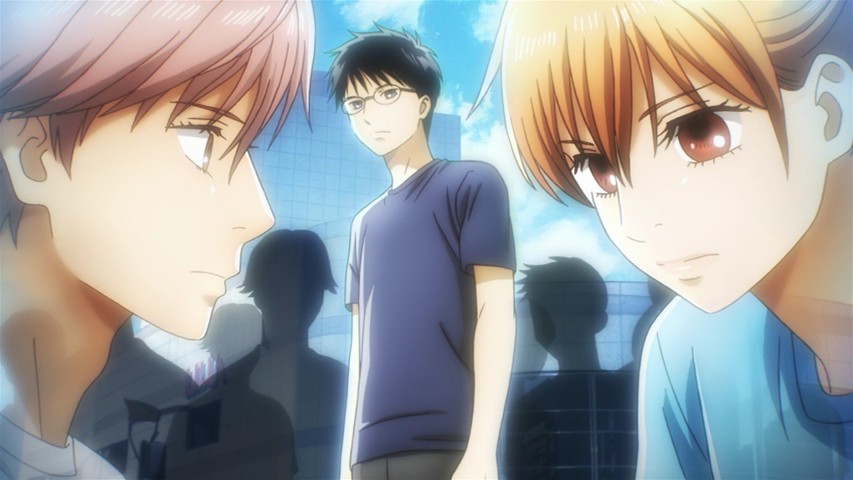
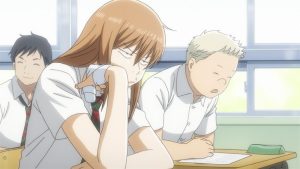
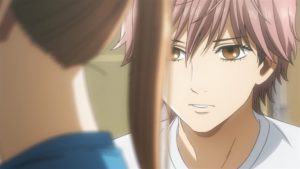






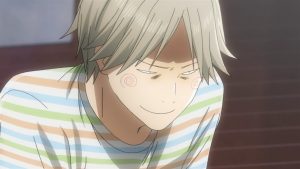



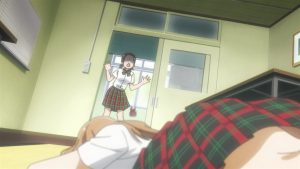
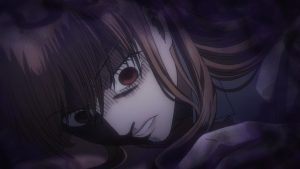
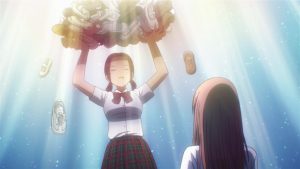





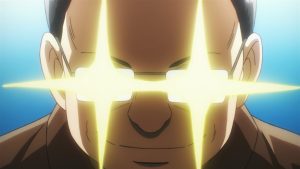

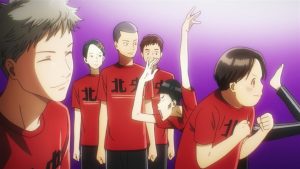




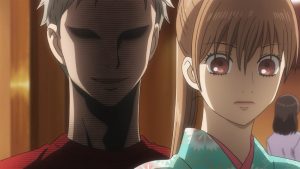
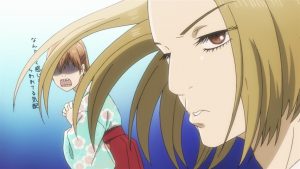



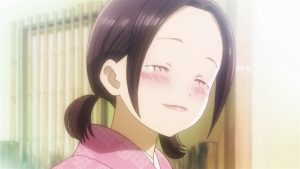

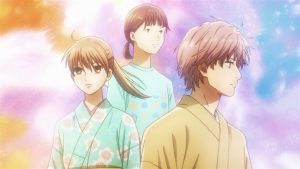



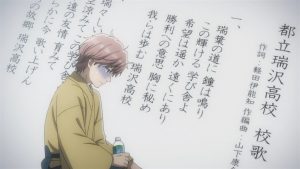




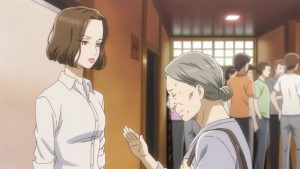




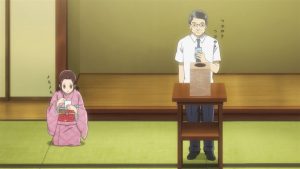

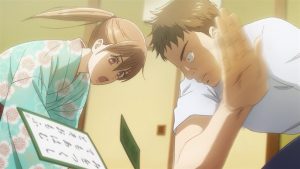






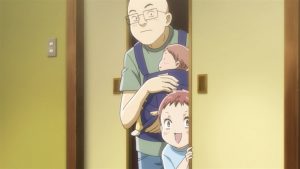


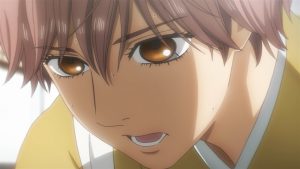


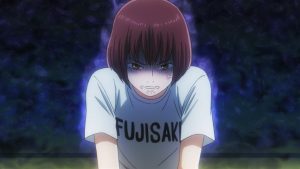




Mi-chan
October 31, 2019 at 1:26 amOh god.. oh god. Is it just me or the pacing is mad fast? like I have a bad headache just keeping up. Integrally amazing, I love how Chihayafuru takes me back to ezaxvrly how I felt..
Is the animation also different? Iunno, feels weird.
Notice how my comment lacks consistency, 2 episodes had me mentally rushed for 3rd and 4th…. I am so nervous. I cant wait to see who Taichi will be set against ..
Ty for your review enzo!
Guardian Enzo
October 31, 2019 at 6:54 amAnimation seems just the same to me. But maybe that looks old-fashioned six years later?
Pacing is quick, but AFAIR about the same as this passage in the manga.
Mi-chan
November 1, 2019 at 5:58 amNo it just doesn’t feel same, there r some clips when hanano and taichinlook weird, also when chihaya gets like competitive it feels diff, but maybe coz of how anxious I’ve been I’m being too focused on details. I don’t think the animation is old, in fact chihaya art is love. There’s however a moment where Arata too looks weird..
Salpsan
October 31, 2019 at 4:52 pmPersonally, I think the pacing has been great, but it is faster than traditional anime. There is barely any dead time between characters talking. They’re jamming in a lot of content into each episode. Not sure if you noticed, but both the OP and ED are just a little over 1 min each vs the traditional 1:30 each which basically amounts to an extra episode throughout the 2 cours.
Nadavu
November 1, 2019 at 2:02 amMan, these episodes were great. But I think back about season two and how it seemed to devolve into a neverending string of tournaments, and I remind myself that we’re only at the very beginning of season 3, and I get a bit worried.
Guardian Enzo
November 1, 2019 at 7:57 amYou should be…
Earthlingzing
November 1, 2019 at 6:29 pmI thought episode 2 was great, but episode 3 just blew that out of the park. There’s depth given to almost every single supporting character, realistic character development for the main leads, tense and difficult to predict outcomes for each match; it’s all really incredible.